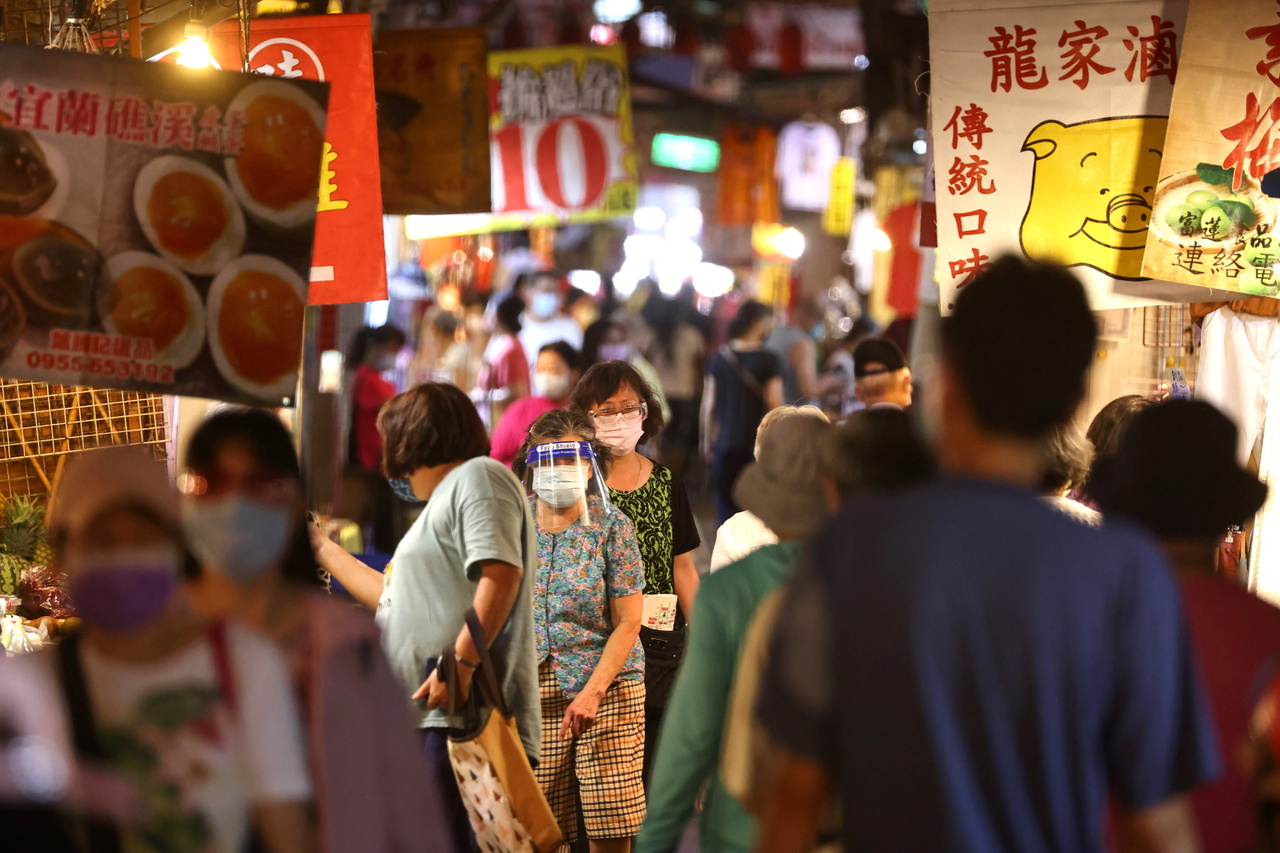With cases stabilising, Taiwan to partially ease Covid-19 curbs
Sign up now: Get insights on Asia's fast-moving developments

With a population of 23.5 million, Taiwan has had roughly 15,000 cases and just over 700 deaths from Covid-19.
PHOTO: REUTERS
TAIPEI (REUTERS, BLOOMBERG) - Taiwan will partially ease its Covid-19 curbs next week but will officially maintain its existing alert level until later in the month, Health Minister Chen Shih-chung said on Thursday (July 8), as its domestic outbreak continues to stabilise.
Taiwan raised its alert level in May following a spike in infections, limiting personal gatherings, closing entertainment venues, parks and movie theatres and restricting restaurants to take-out service.
Those measures will be partially eased on July 13, but the Level 3 alert level will remain in place until July 26, Mr Chen said.
Mr Chen announced 18 new domestic cases on Thursday, the lowest daily number since the current oubtreak started in May.
"We will extend the level 3 alert, but will moderately relax it," he told reporters.
Restaurants will be allowed to open with appropriate controls like space between diners. Parks, movie theatres and gyms will also be re-opened, though swimming pools will remain closed, according to government provided details.
Curbs that will remain include no wedding banquets, no indoor gatherings of more than five people and restricted numbers of people allowed in supermarkets and traditional wet markets. Wearing face masks both inside and outside will remain mandatory.
The real aim, though, is to lift the existing restrictions by July 26, Mr Chen added.
"Let's work hard for this," he said.
"Let's work hard for this," he said.
Separately, 1.13 million donated AstraZeneca Plc vaccine doses from Japan arrived in Taiwan on Thursday, further bolstering its vaccination programme.
Japan donated its first batch, 1.24 million doses, last month. Around one-tenth of Taiwan's 23.5 million people have received at least one of the two-dose vaccine regimen.
Japan donated its first batch, 1.24 million doses, last month. Around one-tenth of Taiwan's 23.5 million people have received at least one of the two-dose vaccine regimen.
There were just 39 newly confirmed domestic cases Wednesday, according to Taiwan Centres for Disease Control data. There have been fewer than 80 local cases each day in the past week.
The decline from a May peak shows Taiwan appears to be successfully curbing its worst outbreak of Covid-19, after last year going for more than 200 days without a single local case.
But the island has recently had a handful of infections of the delta variant, a strain that has complicated the UK's reopening and forced some countries to reimpose curbs.
"The local situation is improving and moving in a positive direction," Premier Su Tseng-chang told reporters Tuesday.
Even if Taiwan isn't ready to exit a soft lockdown as scheduled on July 12, "what I care about is how we can adjust restrictions for some industries, to maintain people's lives and support the economy while preventing infections at the same time."
Taiwan has been under a so-called Level 3 alert since May 19, with indoor family and social gatherings limited to five people and outdoor ones to 10.
Under the curbs, which were extended three times to July 12, schools and recreational facilities including bars have been shut, and restaurants can only serve takeout.
That's hurting retail spending and threatening jobs, even as the broader economy expanded 8.92 per cent from a year earlier in the first quarter, the fastest pace in over a decade, on exports of semiconductors and other high-value products.
Restaurant and dining industry revenue slumped 19.1 per cent in May from a year earlier, according to the economics ministry.
Unemployment in Taiwan rose to its highest level in almost eight years in May, according to a government statement this week, which said there were 489,000 people out of work. Workers in food and beverage and hospitality sectors took the hardest hit.
Despite planning to ease rules, Health Minister Chen Shih-chung has emphasised the focus remains on containing the pandemic. He has also said that rather than a piecemeal relaxation of curbs in different areas, "any changes would apply island-wide."
There are some local rules as well. After a 50-day shutdown, the capital Taipei reopened its world-famous night markets at the end of June, though with fewer food stands, daily temperature checks, and compulsory registration of customers.
Authorities want people to have normal lives with a minimum of controls even before Covid cases drop to zero, Taipei City Mayor Ko Wen-je said on Facebook earlier this month.
Mr Chen Chi-mai, mayor of the southern city of Kaohsiung, said any easing may only apply to outdoor behaviour from July 12, with mask wearing and social distancing still mandatory, the Central News Agency reported.
One key to opening will be whether there are new delta cases from a cluster in nearby Pingtung County.
Taiwan confirmed the first locally transmitted delta cases in the area last month, after a woman and her grandson returned from Peru. The cluster totalled 17 as of Wednesday, with 13 confirmed to have the delta variant.
Delta could be a problem for Taiwan, which has only inoculated about 11 per cent of its population so far. The government aims to vaccinate 20 per cent to 25 percent of the population by the end of July, President Tsai Ing-wen said this week.
With a population of 23.5 million, Taiwan has had roughly 15,000 cases and just over 700 deaths from Covid-19.
At one point the island was close to the top of Bloomberg's Covid Resilience Ranking of economies that have best handled the pandemic. It then slid as the virus got a foothold, plunging in the most recent ranking which included steps taken to reopen to the outside world.


